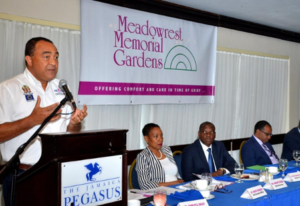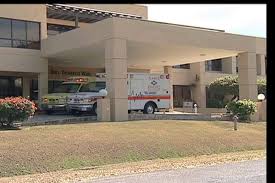Government, morticians, police, criminals making millions from grieving families
Police officers, nurses, henchmen, and even relatives are among those who are colluding with “suitcase undertakers” to make millions of dollars from the deaths of Jamaicans islandwide. Questions are now emerging as to whether the burgeoning illegal funeral home business is a driving force behind the nation’s murder rate.
This multibillion-dollar death industry is a fast-growing giant that is unhindered by state officials who have yet to legislate regulations to govern its operation.
According to president of the Jamaica Association of Certified Embalmers and Funeral Directors, Calvin Lyn, there are an estimated 80 trained funeral operators currently in the country, but they are far outnumbered by those who have no certification in mortuary science and, in many cases, are not registered.
“The hurry-come-up that say they are operators—if we were to check parish by parish, it is not under 1,000,” he noted, while explaining that only the Companies Office of Jamaica could give a clearer picture of how many actually exist.
Lyn, who is the operator of Lyn’s Funeral Home Ltd. in Manchester, has joined with several others in the funeral industry who have expressed concerns about the non-certified, non-registered operators, whom he personally refers to as “fly by nights.”

“Those who are not trained, I don’t call them funeral homes or whatever they are registered as; I call them ‘hurry-come-up, fly by night,’ because they are the ones creating problems in the industry. You know what they do? They pay police, they pay nurse, they pay nursing home, [and] they are paying even the relatives in the yard to get bodies,” he revealed during an interview with Freedom Come Rain.
He cited several cases, including one last month, where a relative of a deceased person had the body sent to one of the up-and-coming funeral homes and then asked the operator to increase the amount on the invoice and give her an agreed amount after the other relatives overseas made payment. The operator confessed when asked why the quoted cost was more exorbitant than other funeral homes for the same service. “She (the family member of the deceased) say relatives are in foreign, they are going to pay for it, and she is not going to get anything,” the funeral home operator disclosed.
Lyn said some of the fly-by-night operators had worked at other funeral parlours or in hospital morgues before leaving to establish their own businesses, so they could cash in on what is now seemingly a lucrative industry.
“They are not trained to use certain types of chemicals, and they will store the bodies in an old freezer under a breadfruit tree at the back of their house,” he noted.
“I have had reports from certified embalmers that John Brown will send for a body and is a taxi come or a minibus with passengers come,” shared Lyn, who said that legitimate funeral home operators are concerned about the public health risks being posed by some of these practices.
In a society that has a very high murder rate and where people are increasingly dying suddenly, Lyn understands why the industry has become very attractive. He noted that some of these operators are not paying the respective parish councils. The aim is often just to make money or “eat a food.”
“It was in the news a couple years ago when the operator of an untrained facility said his business gone down because enough people are not being killed,” Lyn recounted.
He said police officers are also partnering with the “suitcase undertakers” to earn an extra salary. He noted that the police are now directing to which funeral homes bodies should be sent, although there are existing contracts with established funeral homes where bodies should be sent for storage.
“More than one time within the past three months, the person died suddenly; they took sick at home, was rushed to the hospital, [and] pronounced dead. So, we as the contractor in Manchester for the police, by right the body should be sent here [but] the police call them friends,” he said.
Some police officers also make recommendations to grieving family members to give the business to these unregulated funeral entities and then collect a commission on each body they refer. In cases where the bodies are sent to non-contracted funeral homes by the police, the relatives are requested to pay for storage before they can be released to the funeral home of their choice. In one recent case, the family was requested to pay $200,000 for three days’ storage at an unregulated funeral home before they could get back the body of their loved one.

“The police who does these things, they are corrupt, and I cuss them all the time,” said the very outspoken Lyn, who has been operating for 50 years.
He said he has made complaints to former commissioners of police, and even recently, an aggrieved relative said he lodged a complaint with the police.
“The other day we sent for a removal. My driver came back and said, Mr. Lyn, the policeman said he is going to come back to check you,” recounted the senior businessman. “The policeman came to me the following week; hear what he said to me, ‘Mr. Lyn, what can you do for me? Is six bodies I send to give you since last week.”
Freedom Come Rain sent questions regarding the allegations to the Jamaica Constabulary Force Corporate Communications Unit last week, but up to press time, responses were not forthcoming, although the head of the unit, Senior Superintendent of Police Stephanie Lindsay, acknowledged receipt and promised to source the requested information.






